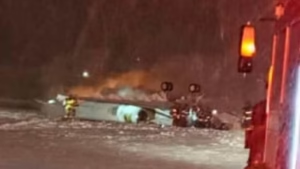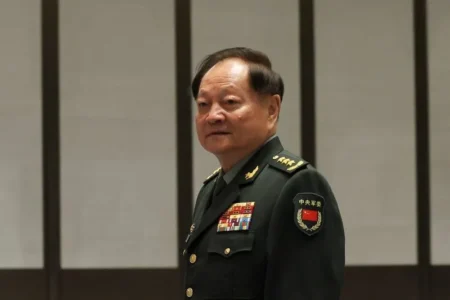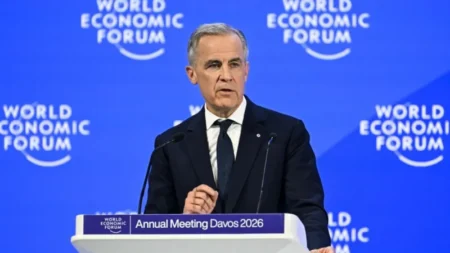The possibility of another US attack on Iran has sparked global attention. Tensions between the two countries have increased sharply after a recent airstrike on Iranian nuclear sites. Now, a top US official’s comment has added fuel to the fire.
White House Press Secretary Carolyn Leavitt appeared on a major American news show this Monday. During the live interview, she confirmed that President Donald Trump had personally ordered the earlier airstrike on Iran. Leavitt said the president acted with full confidence in his decision.
She added that the United States is determined to stop Iran from developing nuclear weapons. “We are fully confident in our goal to eliminate Iran’s nuclear capabilities,” said Leavitt during the interview. She also noted that the US military had already begun operations and hinted that more attacks may follow. In her words, the US plans to strike locations where Iran is hiding enriched uranium.
This bold statement came just days after US forces reportedly dropped bunker-buster bombs on Iranian nuclear facilities. The strikes targeted sites in Fordow, Natanz, and Isfahan on Sunday night. These areas are known for their involvement in Iran’s nuclear program.
The military move comes at a sensitive time. For weeks, Washington and Tehran had been in talks about Iran’s nuclear ambitions. Both sides were trying to find common ground and avoid further conflict. But the situation changed quickly when Israel launched an airstrike on June 13, hitting Iranian territory.
Though the US did not take part in Israel’s initial attack, it joined the conflict shortly afterward. By Sunday, the US had carried out its own airstrikes, focusing on suspected underground nuclear facilities. These strikes used advanced bunker-buster bombs meant to destroy fortified targets deep below the surface.
Iran has not yet confirmed the full damage from these attacks, but experts believe the strikes were aimed at delaying or even stopping Iran’s nuclear development. The US believes Iran may be hiding enriched uranium in these underground sites. This type of uranium can be used to make nuclear weapons, and its presence is a major concern for Western powers.
The US government has not officially announced plans for a second wave of attacks. However, Carolyn Leavitt’s comments have raised alarms. Many analysts now believe a larger military campaign may be in progress.
Iran, on the other hand, has strongly criticized the attack. The country says its nuclear program is for peaceful purposes only. Tehran also claims it has the right to develop nuclear energy under international law.
Despite this, the US remains firm in its position. Officials believe Iran is moving closer to building a nuclear weapon. This concern has been shared by many countries, including those in Europe and the Middle East.
Security experts say that the use of bunker-buster bombs shows how serious the US is. These weapons are not used lightly. Their deployment indicates that the US may target more such locations in future attacks.
Global reactions to the recent airstrikes have been mixed. Some leaders support the US action, saying it helps prevent nuclear escalation. Others warn that further attacks could push the region closer to a larger war.
Talks between Washington and Tehran now appear to be at a standstill. Diplomatic efforts have slowed since the airstrikes. Neither side has given any clear sign of returning to the negotiation table soon.
Observers are watching the situation closely. More military action by the US could trigger a stronger response from Iran. This might lead to more instability in an already volatile region.
For now, the world waits to see what happens next. The key question remains: will the United States launch another attack on Iran?







